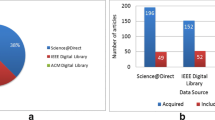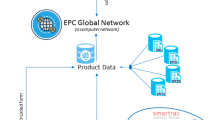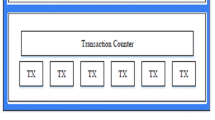Abstract
Blockchain technology has aroused great interest from society and academia since the inception of Bitcoin. Its de-centralization and non-tampering can apply in broader scenarios, such as the Internet of Things, smart cities, and cloud computing. Among various core components, the consensus protocol is the core of maintaining blockchain networks’ performance, stability, and security. However, with the increase of network nodes and the improvement of network complexity, these properties are difficult to meet simultaneously. In this paper, we propose an advancement of the practical Byzantine consensus algorithm (LRBFT). The algorithm uses Lagrange interpolation that all backups can participate in to generate random seeds, uses the seeds to optimize the election process of the primary set, improves consensus efficiency through delegated nodes, and prevents the primary from doing evil through the supervisory mechanism. The generation of random seeds has the characteristics of full participation, unpredictability, and verifiability. The election process of the primary set has randomness, uniform distribution, and supervision. Furthermore, we proved the feasibility of our proposed algorithm through theoretical analysis and experimental evaluations. Experimental analysis shows that when there are 70 nodes in the practical Byzantine fault tolerance (PBFT) consensus protocol. If LRBFT selects only 7 nodes as delegated nodes, the time it takes for LRBFT to reach 100 consensuses is only 0.83% of that of PBFT.






Similar content being viewed by others
Data availability
The raw/processed data required to reproduce these findings cannot be shared at this time as the data also forms part of an ongoing study. Researchers interested in collaboration and further information are invited to contact the author via e-mail to: Ren Yong-Wang [525664402@qq.com].
References
Shao QF, Zhang Z, Zhu YC (2019) Survery of enterprise blockchains. J Softw 30(09):2571–2592
Nakamoto S (2008) Bitcoin: A peer-to-peer electronic cash system. Decentralized Business Review https://bitcoin.org/bitcoin.pdf. Accessed Aug 2022
Kim HM, Bock GW, Lee G (2021) Predicting ethereum prices with machine learning based on blockchain information. Expert Syst Appl 184. https://doi.org/10.1016/j.eswa.2021.115480
Liu J, Li WT, Karame GO, Asokan N (2018) Toward fairness of cryptocurrency payments. IEEE Security & Privacy 16(3):81–89
Pan D, Zhao JL, Fan S, Zhang Z (2021) Dividend or no dividend in delegated blockchain governance: a game theoretic analysis. J Syst Sci Syst Eng 30(3):288–306
Hewa T, Ylianttila M, Liyanage M (2021) Survey on blockchain based smart contracts: Applications, opportunities and challenges. J Netw Comput Appl 177. https://doi.org/10.1016/j.jnca.2020.102857
Banerjee M, Lee J, Choo KKR (2018) A blockchain future for internet of things security: a position paper. Digit Commun Netw 4(3):149–160
Singh SK, Pan Y, Park JH (2021) Ots scheme based secure architecture for energy-efficient iot in edge infrastructure. CMC-Comput Mater Contin 66(3):2905–2922
Majeed U, Khan LU, Yaqoob I, Kazmi SA, Salah K, Hong CS (2021) Blockchain for iot-based smart cities: Recent advances, requirements, and future challenges. J Netw Comput Appl 181. https://doi.org/10.1016/j.jnca.2021.103007
Wei PC, Wang DH, Zhao Y, Tyagi SKS, Kumar N (2020) Blockchain data-based cloud data integrity protection mechanism. Futur Gener Comput Syst 102:902–911. https://doi.org/10.1016/j.future.2019.09.028
Lu Y (2019) The blockchain: State-of-the-art and research challenges. J Ind Inf Integr 15:80–90. https://doi.org/10.1016/j.jii.2019.04.002
Yuan Y, Ni XC, Zeng S, Wang F (2018) Blockchain consensus algorithms: the state of the art and future trends. Acta Automatica Sinica 44(11):2011–2022
Malakhov I, Marin A, Rossi S, Smuseva D (2021) On the use of proof-of-work in permissioned blockchains: Security and fairness. IEEE Access 10:1305–1316
Liu Y, Shen ZY, Zhao FY (2021b) Survey of attacks on proof-of-stake consensus mechanism and countermeasures. J Chinese Comp Syst 42(8):1758–1766
Liu W, Li Y, Wang XJ, Peng YF, She W, Tian Z (2021a) A donation tracing blockchain model using improved dpos consensus algorithm. Peer-to-Peer Netw Appl 14(5):2789–2800
Singh SK, Salim MM, Cho M, Cha J, Pan Y, Park JH (2019) Smart contract-based pool hopping attack prevention for blockchain networks. Symmetry 11(7):941
Xiao Y, Zhang N, Lou WJ, Hou YT (2020) A survey of distributed consensus protocols for blockchain networks. IEEE Commun Surv Tutor 22(2):1432–1465
Yang C, Liu MZ, Wang K, Zhao FX, Jiang X (2020) Review on variant consensus algorithms based on pbft. International Conference on Artificial Intelligence and Security, 6th International Conference. Springer, Hohhot, China, pp 37–45
Yang J, Jia Z, Su R, Wu X, Qin J (2022) Improved fault-tolerant consensus based on the pbft algorithm. IEEE Access 10:30274–30283
YU JD, LI J (2022) Improved practical byzantine fault tolerance consensus algorithm based on raft algorithm. J Comp Appl Online First Publish https://doi.org/10.11772/j.issn.1001-9081.2021111996
de Camargo AP (2020) On the numerical stability of newton’s formula for lagrange interpolation. J Comput Appl Math 365:112369. https://doi.org/10.1016/j.cam.2019.112369
Fu X, Wang HM, Shi PC (2021) A survey of blockchain consensus algorithms: mechanism, design and applications. Science China Inf Sci 64(2):1–15
Xia Q, Dou WS, Guo KW, Liang G, Zuo C, Zhang FJ (2021) Survey on consensus protocol. J Softw 32(02):277–299
Miller A, Xia Y, Croman K, Shi E, Song D (2016) The honey badger of bft protocols. In: Proceedings of the 2016 ACM SIGSAC conference on computer and communications security, Vienna, Austria, pp 31–42
Sun HF, Zhang WF, Wang Xm, Ma Z, Huang LF, Li X (2021) A robust byzantine fault-tolerant consensus algorithm against adaptive attack based on ring signature and threshold signature. Acta Automatica Sinica pp 1–12
Yin MF, Malkhi D, Reiter MK, Gueta GG, Abraham I (2019) Hotstuff: Bft consensus with linearity and responsiveness. In: Proceedings of the 2019 ACM Symposium on Principles of Distributed Computing, pp 347–356
Zhang SJ, Lee JH (2020) Analysis of the main consensus protocols of blockchain. ICT express 6(2):93–97
Chen J, Micali S (2019) Algorand: A secure and efficient distributed ledger. Theoret Comput Sci 777:155–183. https://doi.org/10.1016/j.tcs.2019.02.001
Coelho IM, Coelho VN, Araujo RP, Wang YQ, Rhodes BD (2020) Challenges of pbft-inspired consensus for blockchain and enhancements over neo dbft. Future Internet 12(8):129. https://doi.org/10.3390/fi12080129
Zhan Y, Wang BC, Lu RX, Yu Y (2021) Drbft: Delegated randomization byzantine fault tolerance consensus protocol for blockchains. Inform Sci 559:8–21. https://doi.org/10.1016/j.ins.2020.12.077
Chen YN, Li M, Zhu XH, Fang K, Ren QS, Guo T, Chen XX, Li C, Zou ZY, Deng YC (2022) An improved algorithm for practical byzantine fault tolerance to large-scale consortium chain. Inform Process Manag 59(2)
Yang CN, Wu XT, Lin HY, Kim C (2021) Intragroup and intergroup secret image sharing based on homomorphic lagrange interpolation. J Inform Sec Appl 61
Wang P, Chen WQ, Lin SL, Liu LY, Sun ZW, Zhang FG (2022) Consensus algorithm based on verifiable quantum random numbers. Int J Intell Syst. https://doi.org/10.1002/int.22865
Acknowledgements
I would like to acknowledge Professor, Zhen-Fei Wang, for inspiring my interest in the development of innovative technologies.
Funding
National Natural Science Foundation of China, 61872324.
Author information
Authors and Affiliations
Contributions
Zhen-Fei Wang contributed to the conception of the study, Yong-Wang Ren and Li-Ying Zhang performed the data analyses and wrote the manuscript and Zhong-Ya Cao helped perform the analysis with constructive discussions. All authors reviewed the manuscript.
Corresponding author
Ethics declarations
Ethics approval
Not.
Consent to participate
Not.
Human and animal ethics
Yes.
Consent to publish
Yes.
Conflicts of interest
I declare that the authors have no competing interests as defined by Springer, or other interests that might be perceived to influence the results and/or discussion reported in this paper.
Rights and permissions
Springer Nature or its licensor (e.g. a society or other partner) holds exclusive rights to this article under a publishing agreement with the author(s) or other rightsholder(s); author self-archiving of the accepted manuscript version of this article is solely governed by the terms of such publishing agreement and applicable law.
About this article
Cite this article
Wang, ZF., Ren, YW., Cao, ZY. et al. LRBFT: Improvement of practical Byzantine fault tolerance consensus protocol for blockchains based on Lagrange interpolation. Peer-to-Peer Netw. Appl. 16, 690–708 (2023). https://doi.org/10.1007/s12083-022-01431-3
Received:
Accepted:
Published:
Issue Date:
DOI: https://doi.org/10.1007/s12083-022-01431-3




